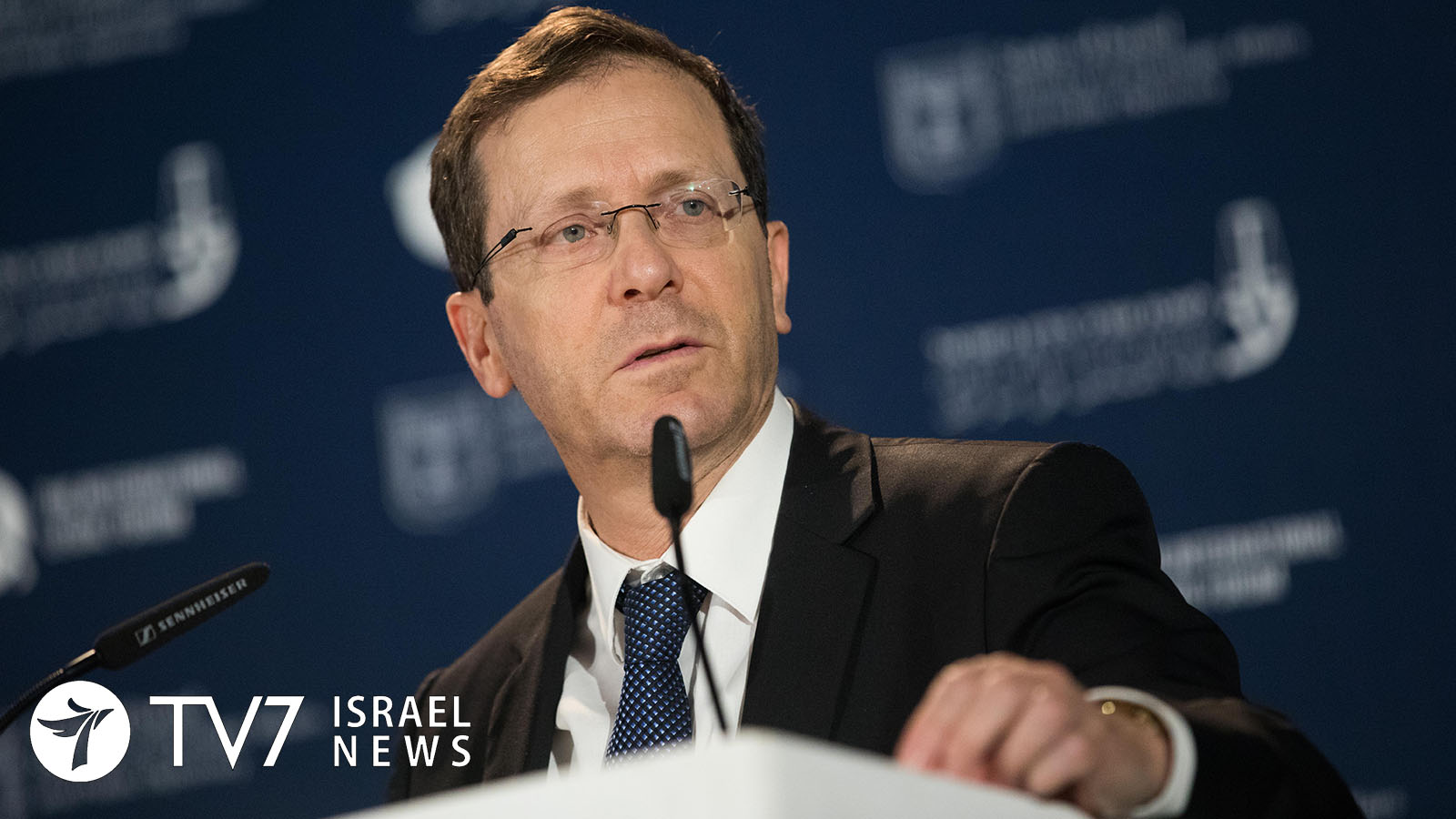Isaac Herzog has been elected the 11th President of the State of Israel.
The 60-year-old candidate garnered 87 votes in a secret Knesset ballot this morning. His only contender, Miriam Peretz, 67, received 26 votes.
All 120 Members of the 24th Knesset (MKs) were present in the plenum for the vote, and the result was decided in the first round. A revote would have been held immediately if neither of the competitors had received 61-vote majority.
The balloting was convened by Knesset Speaker Yariv Levin at 11:00 AM, after which Knesset Secretary Yardena Muller Horowitz called upon the MKs to step forward and cast their votes into a special box in alphabetical order. As none of the candidates had been formally endorsed by any of the political parties, each lawmaker was free to make his/her own choice. The votes were tallied by Knesset Balloting Committee MKs David Bitan (Likud), Emilie Moatti (Labor), Yoel Razvozov (Yesh Atid) and Yosef Taieb (Shas).
The President-elect had been serving as the Head of the quasi-governmental Jewish Agency for Israel, which is the largest Jewish nonprofit organization in the world, which works to promote immigration.
Herzog is also the former chairperson of the Labor party, who unsuccessfully ran a campaign against Prime Minister Benjamin Netanyahu in 2013. Previous positions he held include Government Secretary (1999, 2001) Member of Knesset (2003-2018), Minister of Housing & Construction (2005), Minister of Tourism (2006–2007), Minister of the Diaspora, Society and the Fight against Antisemitism (2007–2009) and Minister of Welfare & Social Services (2007–2011).
It was an historic election for several reasons. It was the first presidential race in Israel in which none of the candidates were current MKs, Peretz would have been the first female president and “settler” if elected, and Herzog won his victory in the widest-ever margin to become the first son of a former president to be elected to office.
As the descendant of one of Israel’s most prominent founding families, Herzog’s father, Maj. Gen. Chaim Herzog, served as the country’s 6th president between 1983 and 1993 after representing Israel as Ambassador to the United Nations.
In addition, his grandfather Yitzhak HaLevi Herzog – for whom he was named – was Israel’s first Chief Rabbi after Israeli independence. Prior to that, he was the Ashkenazi Chief Rabbi of the British Mandate of Palestine, as well as the first Chief Rabbi of Ireland.
Israel’s first Foreign Minister and Ambassador to both the United States and the UN, Abba Eban, was Herzog’s uncle.
Isaac Herzog, whose nickname is “Bougie,” will be sworn into office on 9 July, upon expiration of the 7-year term of his predecessor, President Reuven “Ruvi” Rivlin. Israeli presidents are only permitted to serve a single term.
“I have no doubt that you will do an excellent job, and I am proud to pass the baton to you,” said President Rivlin in congratulations to his successor, underscoring that “Keeping the guard of the Israeli state entails a heavy responsibility.”
The role of the presidency is largely as a ceremonial head of state, representative of the nation’s moral standards while also advancing unity. Vowing to be the “president for all Israelis,” Herzog vowed to “build bridges of agreement in order to bring together even the furthest apart, here within Israel and with our brothers and sisters in the Diaspora.”
Caretaker Prime Minister Netanyahu offered best wishes to his former political adversary, saying, “I congratulate Isaac Herzog on his election as president and wish him great success in the name of citizens of Israel.”
Netanyahu also expressed gratitude to Miriam Peretz “for her honorable candidacy,” adding his confidence that “she will continue to contribute to Israeli society as she has done all her life.”
Peretz was awarded the nation’s top award, the Israel Prize, in 2018 for lifetime achievement for her work as an educator on Judaism, Zionism and grief. Two of her sons died in combat while serving in the Israel Defense Forces, and she became a beloved figure for her subsequent messages of unity and healing.
The Moroccan-born candidate, who came to Israel as a child, had been viewed as a conservative nationalist, partially for her longtime residency in Israel’s “settlements.” She lived with her family in the Sinai until it was transferred to Egypt as part of the Arab Republic’s 1979 peace treaty with Israel, and then relocated to the West Bank town of Givat Zeev north of Jerusalem.
In reciprocal acts of graciousness after the vote, Herzog referred to Peretz as a hero and an inspiration, while she said he will be “a fitting president who honors us” and that she would “pray for his success – because his success is our success.”
